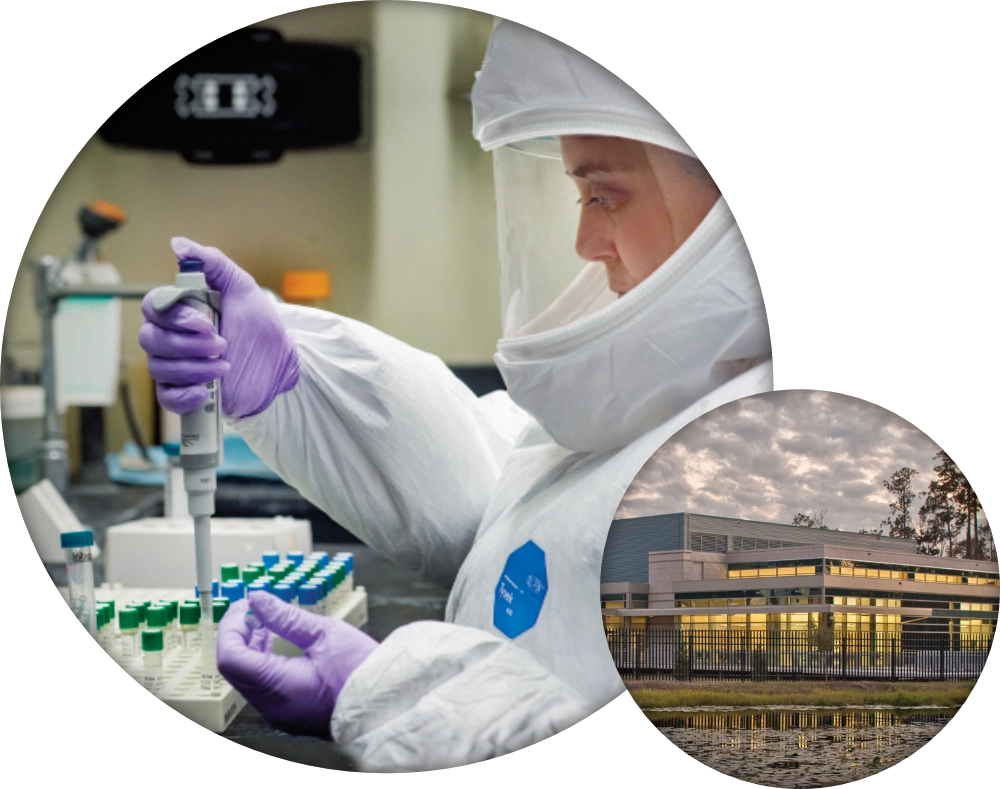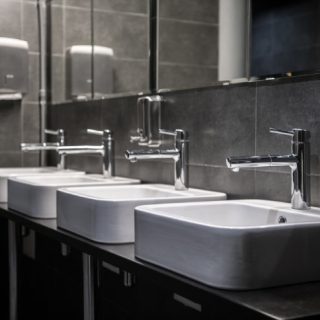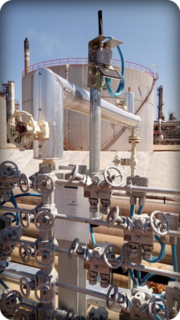Smarter Labs for the Future at Tulane University
Monitoring Cold Storage with Advanced IoT
Background
 A critical function within the laboratory environment is ensuring that refrigeration systems accurately track and maintain proper temperatures to safeguard the invaluable specimens, vaccines and reagents that they house. One failure of the freezers (or refrigerators) or an unexpected, unannounced change in storage temperatures, can tragically lead to sudden and major losses. Such losses can have significant financial and scientific consequences, as much of the stored material is irreplaceable.
A critical function within the laboratory environment is ensuring that refrigeration systems accurately track and maintain proper temperatures to safeguard the invaluable specimens, vaccines and reagents that they house. One failure of the freezers (or refrigerators) or an unexpected, unannounced change in storage temperatures, can tragically lead to sudden and major losses. Such losses can have significant financial and scientific consequences, as much of the stored material is irreplaceable.
Challenge
Armed with this knowledge and determined to protect the perishable contents at all costs, Tulane University’s National Primate Research Center (TNPRC), one of the seven NIH-funded National Primate Research Centers in the country, set forth to find the optimal solution.
Within TNPRC, every freezer requires protection, and alerts must be smart and customized to ensure appropriate staff are notified effectively. Without these functions, they risk false alarms and wasted time. Additionally, TNPRC required consistent and accurate tracking of internal temperatures that was easy to access from phones, with no down time.
Solution Requirements
- Monitoring
- Alert customization
- Low temperature cut-off
- Remote monitoring
- Cost
- User-friendly
- Secure, cloud-based data storage
- Compliance with FDA and cGxP regulations
Solution
Conducting a head-to-head analysis, TNPRC evaluated several leading temperature monitoring systems on the market. Although other monitoring systems were able to meet some of the criteria, the CORIS Monitoring System (developed by CORIS Life Sciences Monitoring) was the only system that met all of them, providing the most user-friendly software at a price point that was considerably less expensive than competitive offerings. Another unique feature favorable to TNPRC was CORIS’ outlet module which, when combined with their monitoring system, functions as a low temperature cut-off device, vital for protecting contents that could be damaged by freezing.
To reach the hundreds of freezers in all 22 buildings of the TNPRC campus, CORIS used MultiTech LoRaWAN® based wireless devices as part of their system to collect and transmit the internal temperatures of the freezers. LoRaWAN is an increasingly popular new communication system that offers affordable and reliable connectivity to a high number of sensors distributed over large geographical areas. CORIS traditionally designed and manufactured its own modules and gateways, but MultiTech’s LoRaWAN solutions offered an attractive alternative – the ability to send information over longer distances and through building walls. Ultimately, this resulted in better wireless communication with fewer gateways across its multibuilding campus. For the end-users at TNPRC, this meant that no information was missed, and all data could be shared and programmed appropriately. With this solution, the precious contents of the refrigeration systems are protected.
Benefits
“CORIS Monitoring System has enabled our individual laboratories to become more proactive in monitoring their fridges and freezers. It has decreased the burden for both laboratory and facilities personnel as remote monitoring is now possible, reducing the need for twice daily in-person temperature checks,” said Angie Birnbaum, director of Tulane’s Office of Biosafety. “In addition, the customizable nature of the alert system has allowed us to ensure that each group has units operating within their desired temperature range and can receive critical alerts when, and how they want them, without exposing users to alert fatigue.”
The installation of the new system has enabled TNPRC to offer storage for regulated and contract materials that is fully temperature-monitored, with emergency action plans to ensure these materials are protected in the case of a critical failure event. It has also further improved the institution’s knowledge on the importance of monitoring temperatures over time within the units, not only for ensuring quality of contents, but also for tracking the health and correct usage of the unit.
Outlook
Looking to the future, TNPRC will continue to expand its use of CORIS’ monitoring technology, requiring this system for all temperature-controlled units at TNPRC. This will eventually include the use of the CORIS temperature monitoring and alert systems in both its freezers and incubators.
“An unanticipated result from installing the CORIS monitoring system was the discovery that many of our fridges and freezers are not operating within the stated manufacturer range,” continued Angie. “This knowledge allows us to map temperatures using the CORIS technology and redistribute contents to ensure all contents are stored optimally. The impact to the University has been transformational.” “It has decreased the burden for both laboratory and facilities personnel as remote monitoring is now possible, reducing the need for twice daily in-person temperature checks.” Angie Birnbaum, Director
Ready to learn more about how MultiTech products can take your business to the next level? Contact our team of experts online at MultiTech.com today!
For additional information, contact: sales@multitech.com


